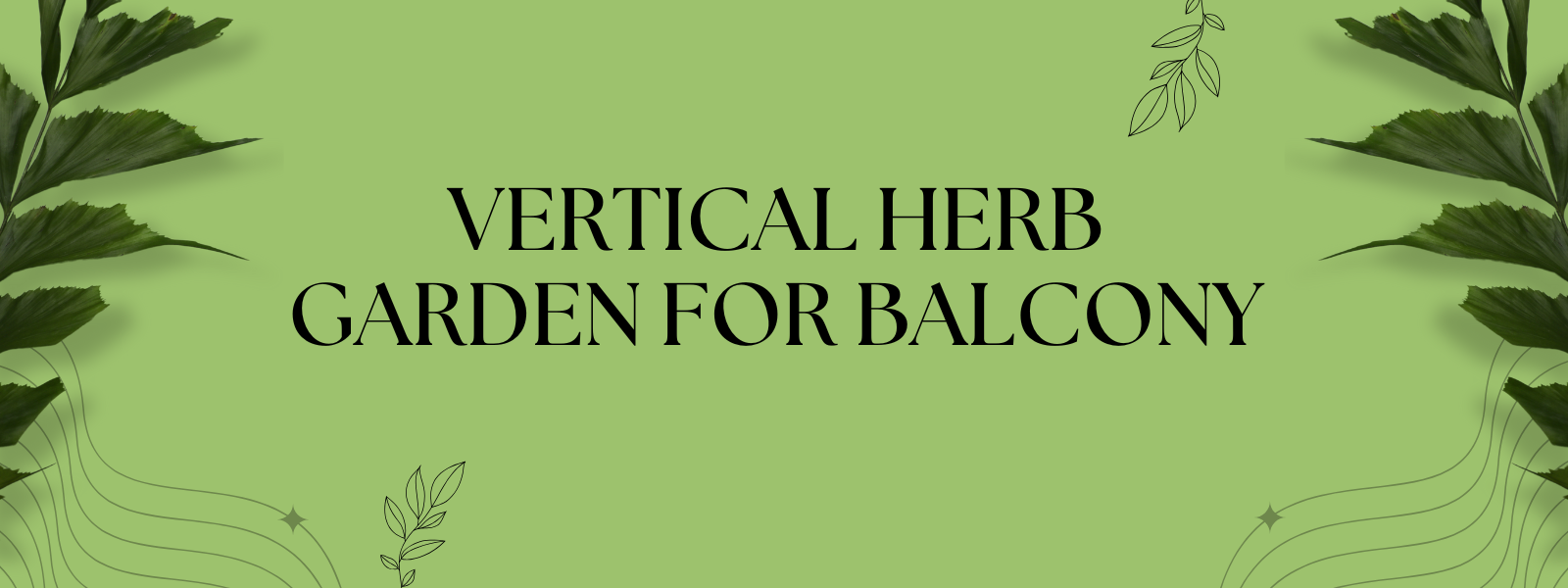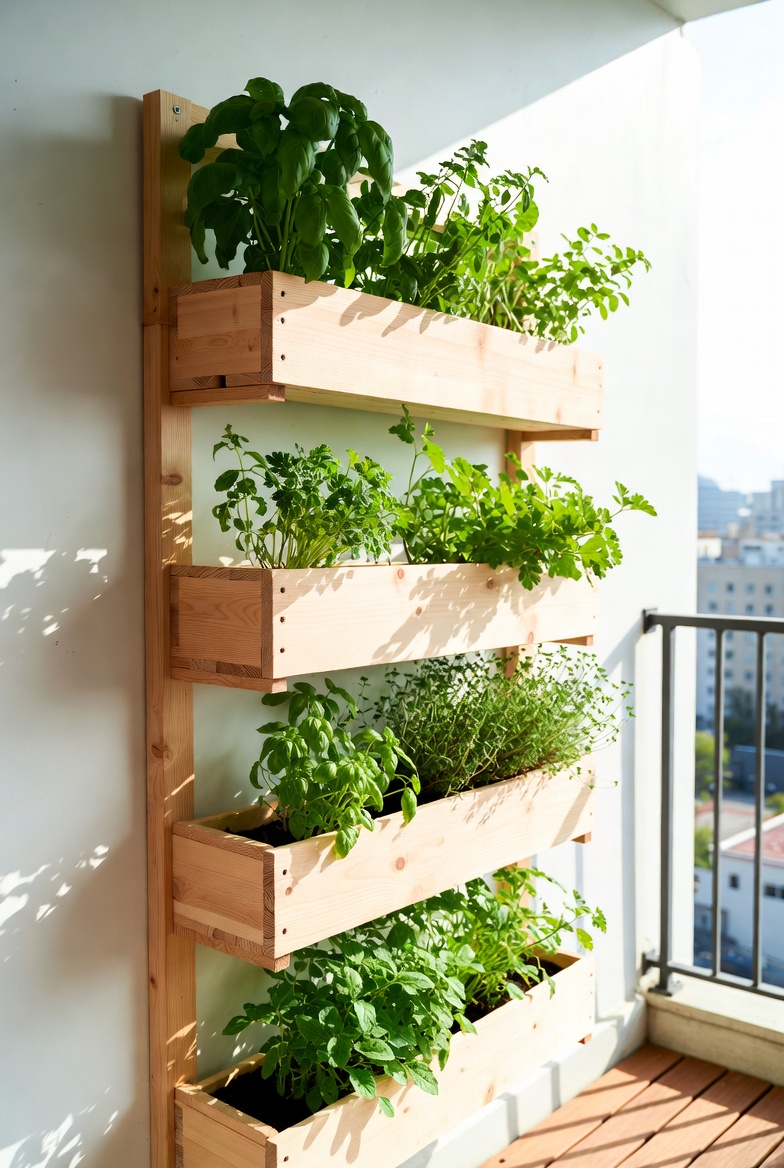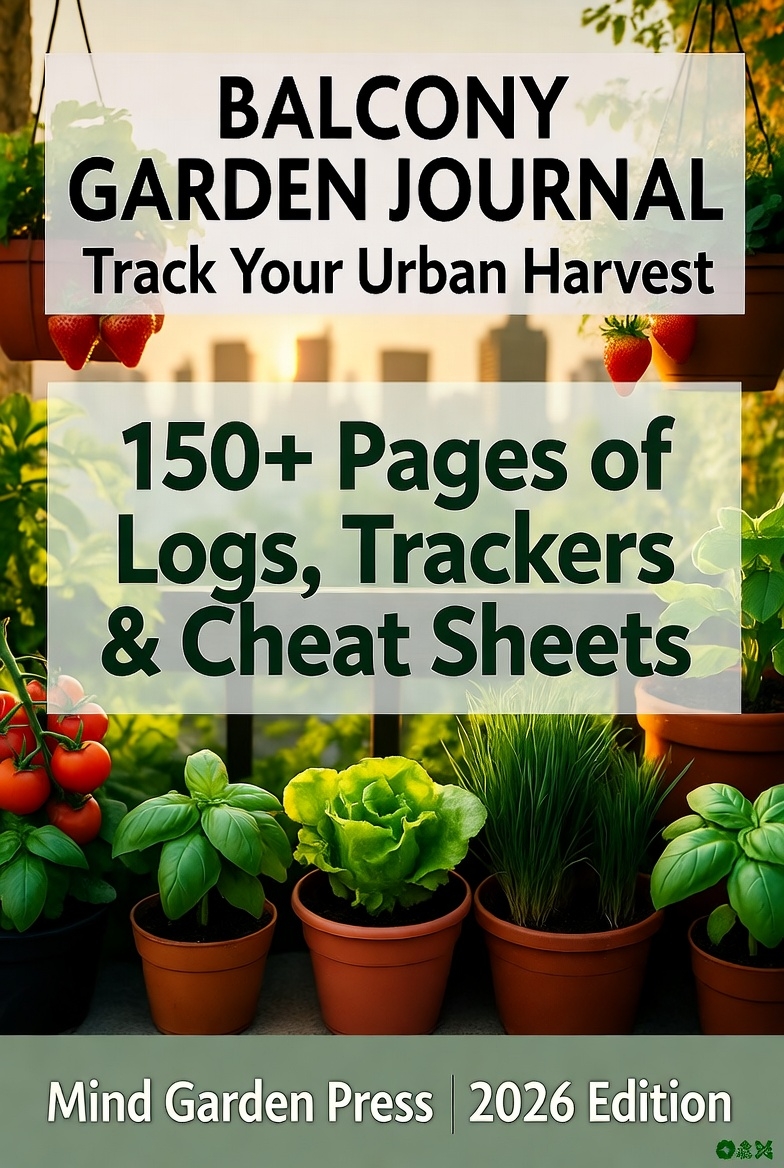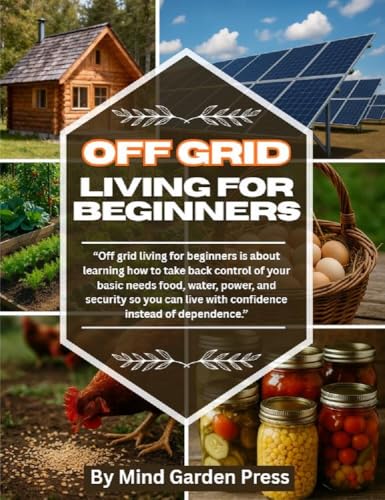
🌿 Sign Up for Your Free 3-Month Gardening Log!
Keep your garden thriving all season long with our 30 Weekly Garden Logs — perfect for tracking plant growth, watering schedules, weather notes, and harvest results.
When you sign up, you’ll also receive a free 3-Month Gardening Log Journal to stay organized and inspired as you grow.
Join below and start logging your garden today!

Vertical Herb Garden for Balcony: Maximize Space in Style
If your balcony is small but your herb dreams are big, a vertical herb garden is the perfect solution. By growing up instead of out, you can fit more plants into tight spaces while turning your balcony wall or railing into a living green feature.
Use this guide together with the layout and planning pages in my balcony gardening journal (ASIN B0FZVM9K3L) to sketch your vertical setup and track how each level performs.
Popular Types of Vertical Herb Gardens
There are many ways to build a vertical garden. Here are a few beginner-friendly options:
| Type | Description | Best For |
|---|---|---|
| Tiered shelves | Stacked shelves holding individual pots | Rental balconies, flexible layouts |
| Fabric pocket planter | Wall-mounted felt pockets for herbs | Lightweight walls, many small plants |
| Stackable pots | Pots that stack on top of each other | Very small floor spaces |
| DIY pallet garden | Upcycled wooden pallet with pockets | DIY projects and rustic style |
Planning Your Vertical Herb Layout
Light and water move differently in vertical gardens. The top pockets dry out faster and usually get more sun, while the lower ones stay cooler and more moist.
Simple Layout Strategy
- Top row: Sun-loving, drought-tolerant herbs (thyme, rosemary, oregano).
- Middle rows: Basil, sage, dill—moderate water needs.
- Bottom row: Moisture-loving herbs (mint, parsley, chives).
Watering and Fertilizing a Vertical Herb Garden
Water tends to flow downward in vertical systems, which means:
- Top pockets often dry out first.
- Bottom pockets may stay wetter longer.
- Middle sections can be “just right.”
Check soil moisture at different levels with your finger rather than watering everything on a strict schedule. Adjust your routine as you learn how water moves through your setup.
For more detailed watering ideas, see Watering Tips for Balcony Herb Gardens.
Safety & Balcony Considerations
Vertical gardens concentrate weight in a smaller footprint, so always:
- Check that your balcony railings and walls can safely support the system.
- Secure tall structures against wind to prevent tipping.
- Avoid blocking emergency exits or doors.
Track and Refine Your Vertical Setup
Your first vertical garden is a test run. After a few weeks, you’ll notice patterns:
- Some herbs may be happier when moved up or down a level.
- You might switch thirsty herbs lower and tougher herbs higher.
- You’ll learn how often each level needs watering.
Want more small-space ideas? Explore:

Track Your Balcony Garden Progress
Turn your balcony herb garden ideas into a living reality with the Balcony Gardening Journal (ASIN B0FZVM9K3L) — your hands-on companion for planning, tracking, and celebrating every season’s growth.
Record sunlight patterns, watering schedules, weekly notes, and harvests all in one easy place. A perfect match for every cluster guide in your balcony gardening journey.
View the Balcony Gardening Journal on Amazon



















